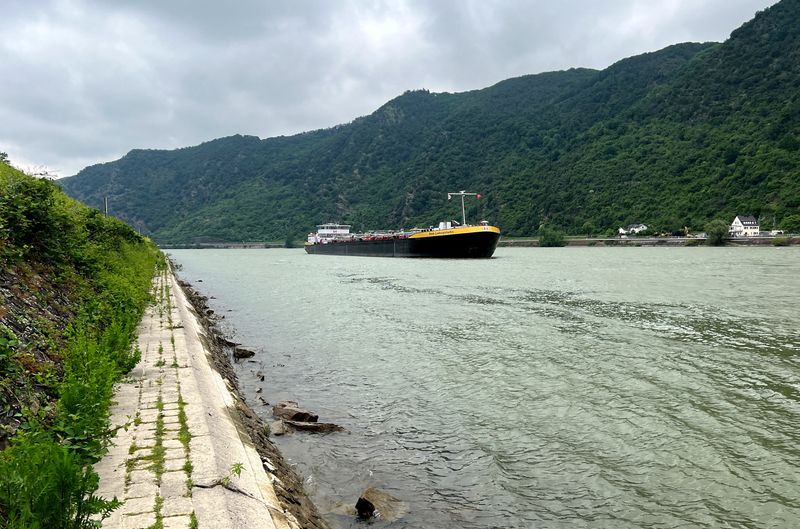HAMBURG (Reuters) - Heavy rain has raised water levels on the river Rhine in Germany enabling normal shipping in some areas, but the river is still too shallow in northern areas for cargo vessels to sail fully loaded, commodity traders said on Friday.
Dry weather in June meant the river became too shallow for vessels to sail fully loaded and ship operators imposed surcharges on freight rates to compensate for vessels sailing partly empty, increasing costs for cargo owners.
"Rain has prevented a crisis in shipping so far this year," one trader said. "River water levels are falling regularly but also rising regularly so cargo is being delivered but with extra costs for industry."
Water levels at the chokepoint of Kaub have risen sharply after hitting their lowest so far this year earlier this week and have now reached levels allowing full vessel loadings, they said.
The Rhine is still too shallow for normal sailings in northern areas around Cologne and Duisburg. Some vessels, depending on the type, can only sail less than half full in northern regions, the traders said. More rain in the coming days could provide further improvement.

German industry is finding new ways to transport cargoes from coal to chemicals as increasingly frequent low water levels on the Rhine disrupt Europe's largest economy, major cargo shippers told Reuters.
The Rhine is an important shipping route for commodities such as grains, minerals, coal and oil products, including heating oil. German companies faced supply bottlenecks and production problems in the summer of 2022 after a drought and heat wave led to unusually low water levels on the Rhine.